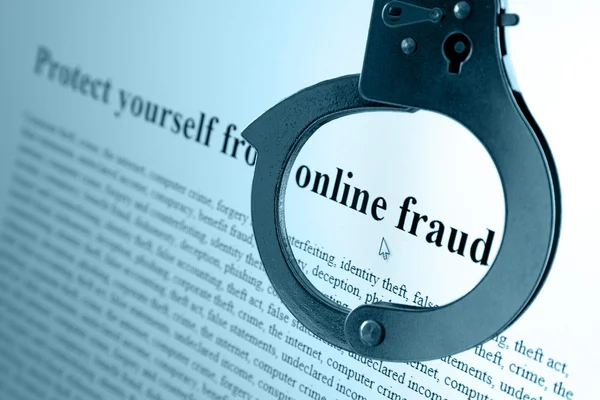In today’s digital age, online fraud has become a common practice. From identity theft to fake websites, scammers use various methods to deceive and steal from unsuspecting victims. However, engaging in online fraud can have severe legal consequences. In this article, we’ll discuss the different types of online fraud and the legal implications of committing such crimes.
Types of Online Fraud

- Identity theft: This is when someone steals your personal information, such as your name, address, Social Security number, or credit card details, and uses it to commit fraud.
- Phishing: This is when scammers send fraudulent emails or messages that appear to be from legitimate sources, such as banks or online retailers, to trick you into revealing your personal information or login credentials.
- Ponzi schemes: This is a fraudulent investment scheme where returns are paid to earlier investors using the capital contributed by newer investors.
- Credit card fraud: This is when someone uses your credit card information to make unauthorized purchases.
- Online auction fraud: This is when someone sells goods on an online auction site but fails to deliver the goods or delivers something that is significantly different from what was advertised.
The Legal Consequences of Online Fraud
Online fraud is a serious crime, and the legal consequences can be severe. Depending on the type and severity of the fraud, the punishment can range from fines to imprisonment. Here are some of the potential legal consequences of engaging in online fraud:
- Fines: Depending on the severity of the fraud, fines can range from a few thousand dollars to millions of dollars. For example, in 2018, the Federal Trade Commission fined Facebook $5 billion for violating users’ privacy.
- Imprisonment: In some cases, engaging in online fraud can result in imprisonment. For example, in 2019, a man was sentenced to 17 years in prison for his role in a $1.3 billion online fraud scheme.
- Restitution: In addition to fines and imprisonment, perpetrators of online fraud may also be required to pay restitution to their victims. This means they have to compensate their victims for any monetary losses they incurred due to the fraud.
- Damage to reputation: Engaging in online fraud can damage your reputation and make it difficult for you to find employment or obtain credit in the future.
Protecting Yourself from Online Fraud

The best way to protect yourself from online fraud is to be vigilant and take the necessary precautions. Here are some tips:
- Use strong passwords: Use a mixture of upper and lower case letters, numbers, and symbols to create a strong password. Also, avoid using the same password for multiple accounts.
- Don’t click on suspicious links: If you receive an email or message that looks suspicious, don’t click on any links within it. Instead, go directly to the website and login from there.
- Monitor your accounts: Keep an eye on your bank and credit card statements to ensure there are no unauthorized transactions.
- Use two-factor authentication: Two-factor authentication adds an extra layer of security to your accounts by requiring you to enter a code sent to your phone or email in addition to your password.
Online fraud is a serious crime that can have severe legal consequences. Therefore, it’s essential to be vigilant and take the necessary precautions to protect yourself from scammers. By following the tips above, you can reduce your risk of falling victim to online fraud.


Comments are closed.